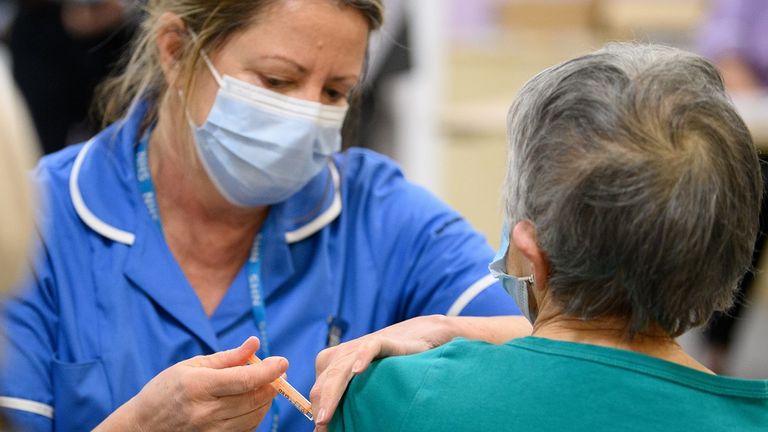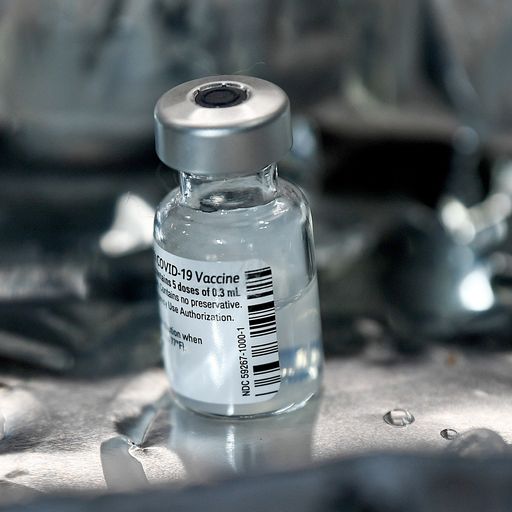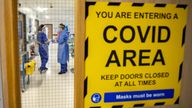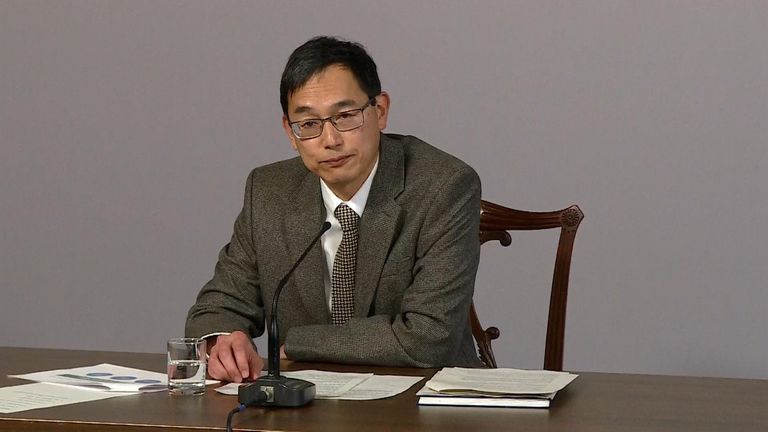COVID-19: Study shows one vaccine dose leaves UK's over-60s 'seriously vulnerable'
The evidence that the second dose can be delayed for three months looks shaky - not even the manufacturers recommend it.
Wednesday 20 January 2021 06:37, UK
Vaccines have to work in the real world, not in the artificial bubble of a clinical trial.
So the findings from Israel's impressively-rapid rollout of the Pfizer/BioNTech vaccine are troubling.
They suggest the UK's decision to delay the second dose exposes the elderly and vulnerable to a significantly higher risk of infection than we were told by the government's vaccines advisers.
At the end of December, the JCVI announced that the efficacy of the vaccine was "around 90%", starting 14 days after the first dose.
"Short term protection from dose 1 is very high," the advisers announced in a statement. On the basis of that data they concluded it was safe to delay the second dose for up to 12 weeks and roll out the vaccine faster.
But the stats from Israel suggests that the efficacy of one dose is just 33%.
And that was in people over the age of 60, those who need protection the most.
So people in the UK who've had one shot of the vaccine, and perhaps feel the odds are now in their favour, are still seriously vulnerable to infection.
The Israeli research hasn't been published or peer reviewed. And they haven't said what impact the vaccine had on serious infections that required hospital admission.
It's also worth pointing out that in Israel the vaccine's effectiveness was measured using a PCR test, which would have detected the virus whether or not people had symptoms.
In Pfizer's clinical trial the effectiveness was determined by whether or not people had symptomatic COVID-19.
Nevertheless, the Israeli scientists believe the UK experts have significantly overestimated the immunity from one dose of the vaccine.
The Pfizer/BioNTech vaccine uses mRNA technology that has never before been rolled out to protect people in the real world.
Two doses look spectacularly effective. That's been shown in the clinical trials.
But the evidence that the second dose can be delayed for three months looks shaky. Not even the manufacturers recommend it.
And the experience from Israel does nothing to boost confidence in the way the vaccine is being used in the UK.






